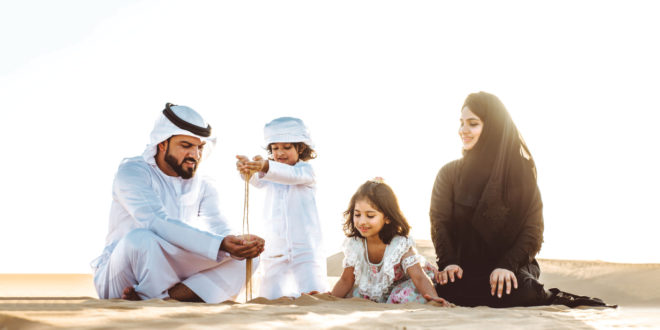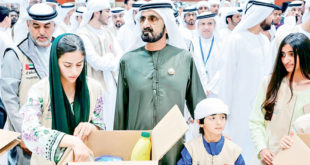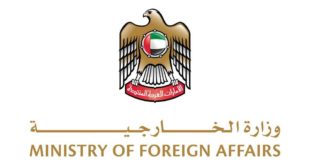Protecting the family and consolidating its gains tops the list of priorities and concern in all governmental policies, plans and programs in the UAE, based on its firm conviction that the family represents the basic incubator and the first nucleus of a cohesive, tolerant and secure homeland where all its members enjoy prosperity and stability.
Despite the rapid transformations and changes the world has witnessed in the last two decades, especially in the field of digital and technological development, which has created great challenges and a direct threat to societal security and family stability around the world, the UAE has succeeded in providing a role model in how to protect the family and enhance its cohesion through the establishment of an integrated system. Of the laws and procedures related to the protection and care of all its members and awareness of their rights.
In its habit of turning challenges into opportunities, the UAE has shown high professionalism in dealing with the challenges of the digital revolution in terms of stability and family cohesion by harnessing smart applications and modern means of communication in the service of programs and initiatives aimed at protecting all family members from any abuse, introducing them to their rights and motivating them to adhere to values. National customs and traditions of the high community.
The great care enjoyed by the Emirati family has become a source of Arab and international inspiration and praise, which is monitored by international indicators. The annual survey conducted by the BAV research group in cooperation with the Wharton School of the University of Pennsylvania, USA. The survey covered human rights and the family life environment, with considerations of equality in income-generating opportunities, security, education services and health care systems.
The UAE ranked first in the Arab world in the totality of these standards. It also ranked 22nd in the world in terms of total quality of family life and child-rearing standards, 23rd in international leadership standards in these areas, 25th in quality of life measures, and 26th in women’s issues.
The task of protecting and caring for the family in the UAE is carried out by a large group of federal and local bodies and institutions that work in a harmonious and integrated manner, most notably the Supreme Council for Motherhood and Childhood, the Ministry of Community Development, the Supreme Council for Family Affairs in Sharjah, the Community Development Authority in Dubai, and the Department of Community Development in Abu Dhabi. In addition to many support centers that are spread throughout the country.
Her Highness Sheikha Fatima bint Mubarak, Chairwoman of the General Women’s Union, Supreme Chairwoman of the Family Development Foundation and President of the Supreme Council for Motherhood and Childhood, “Mother of the Emirates”, is considered the pioneer of initiatives and programs that serve the Emirati family and preserve its cohesion and stability, and the role of Her Highness in supporting and sponsoring programs, initiatives and forums that promote From the Arab family bonding in general and the Gulf one in particular, and Her Highness’s efforts to enhance family interaction and convergence, which contributes to providing the highest levels of family and community security and safety at the Gulf and Arab levels.
The “National Family Policy” adopted by the UAE in March 2018 constituted a turning point in the course of drawing up plans and developing policies and action programs aimed at building a cohesive family system in the country, especially as it included multiple axes related to marriage, child care, family protection, and the establishment of correct parenting.
The “National Family Policy” aims to educate the Emirati family about its rights and duties to ensure its contribution to sustainable social development, by building and forming future Emirati families capable of bearing the burdens of marital life and facing the pressures of life, upholding the values of maintaining the stability and sustainability of family life, in addition to upgrading the capabilities of the Emirati family to create Promising generations shouldering their responsibility.
The national policy for the family includes six axes, the first of which is the marriage axis, which deals with young people about to get married and newly married, and aims to prepare them to assume their marital responsibilities and educate them on the importance of psychological and social compatibility, while the second axis deals with family relations and aims to support the family in facing life pressures and includes a set of initiatives directed to the general public. Most notably, the preparation of the “Guideline for the Cohesive Family”, which clarifies the rights and duties of family members, the general principles of marital relations, and the special procedures that protect against family disintegration.
The third axis of the policy focuses on balance in roles, targeting fathers, mothers, widows, and divorced women, through which awareness-raising initiatives and programs are launched on the role of both the father and mother in building a happy and cohesive family. address their problems.
The fourth axis in the national family policy is concerned with caring for children by providing a healthy and sound environment to support the Emirati family to bear the pressures and challenges of life, through the issuance of legislation regulating the provision of home care for children through qualified babysitters to take care of children and accompany them in accordance with legal frameworks, regulatory controls and approved standards.
As for the fifth axis in the policy, it is concerned with family protection and targets institutions and bodies concerned with child protection through the development and issuance of a “guideline” that includes standards for child protection from all forms of violence and exploitation and how to preserve the child’s psychological and emotional safety, while the sixth axis of the national family policy is devoted to the framework of action that It is concerned with re-engineering the provision of family services to achieve family happiness, preparing a “guideline for providing family services” and establishing a “family observatory” that provides detailed data for families in a scientific way that contributes to studying their needs, in addition to launching a program to qualify specialists in the field of family training and counseling.
and in a
 Media ININ Economy We Trust
Media ININ Economy We Trust








